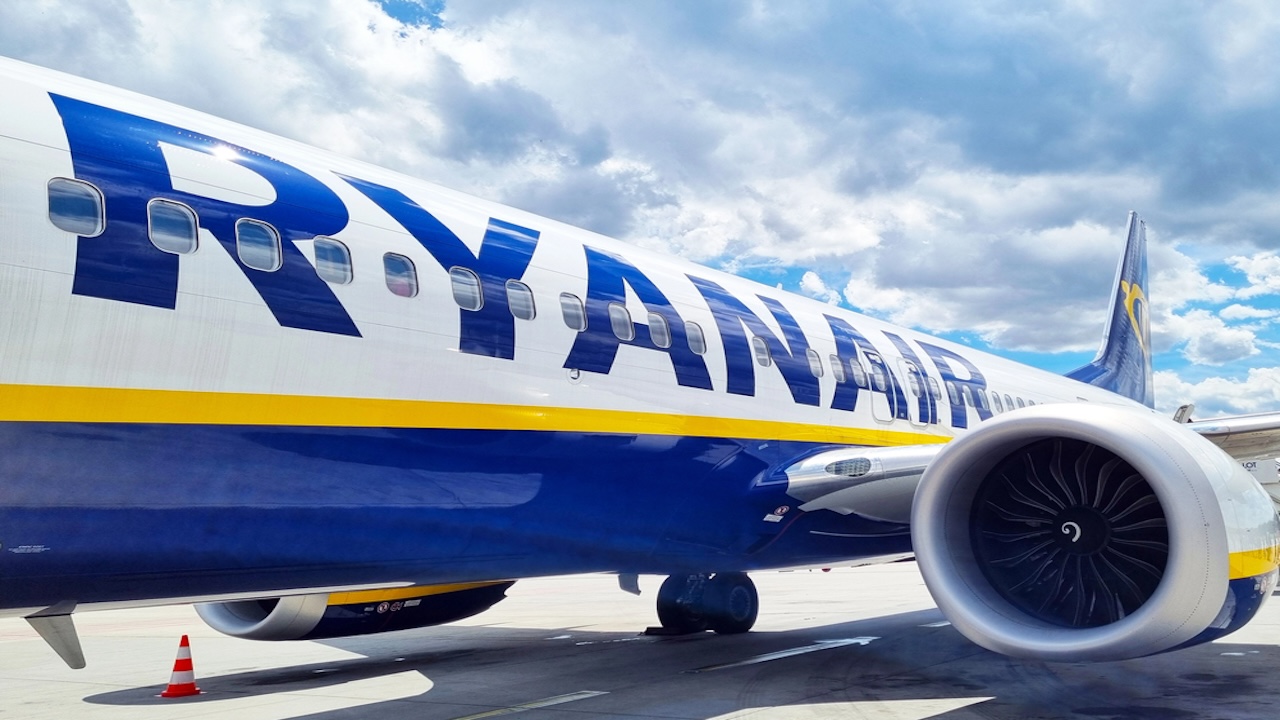
Take a look at our newest merchandise
Portugal’s aviation authority has delivered a agency rebuke to Ryanair’s digital-only boarding cross coverage, forcing the price range airline to keep up paper alternate options and highlighting rising tensions between airline digitization efforts and passenger rights protections throughout Europe.
Ryanair’s Digital-Solely Coverage
In September, low-cost service Ryanair introduced that it will solely settle for digital boarding passes ranging from 12 November. The airline now requires passengers to verify in on-line and generate their boarding cross on the Ryanair app. The coverage represents a big shift for the Irish service, affecting thousands and thousands of passengers throughout its European community.
In keeping with the airline, round 80% of consumers already verify on this approach, however that also leaves a big 20% who don’t, elevating issues about accessibility for passengers who might battle with digital know-how.
Portugal’s Robust Regulatory Response
Portugal’s Nationwide Civil Aviation Authority (ANAC) has taken an unusually assertive stance towards the coverage. “ANAC has knowledgeable the airline in query [Ryanair] that it should successfully chorus from any behaviour that forestalls passengers with a confirmed reserving (and check-in) from boarding a flight as a result of they don’t have a digital boarding cross,” it mentioned in an announcement.
Portugal’s Nationwide Civil Aviation Authority (ANAC) has issued steering on the brand new guidelines to make clear passenger rights. After analysing each the data offered by the service on its web site and extra clarifications, ANAC concludes that: “It seems that Ryanair intends to ensure all passenger rights, together with these of passengers with disabilities, diminished mobility or who wouldn’t have a smartphone or pill”.
Key Regulatory Necessities
The Portuguese authority has imposed particular obligations on Ryanair to make sure compliance with passenger rights regulation. It states that the service should chorus from any behaviour that forestalls passengers in Portugal with a confirmed flight reservation and who’ve checked in from boarding as a result of they don’t have a digital boarding cross.
In keeping with ANAC, the airline must also not impose charges for acquiring and utilizing paper boarding passes. This prohibition on extra charges addresses one of many main issues about Ryanair’s conventional method to charging for varied companies.
Broader Accessibility Issues
The transfer has raised issues about aged passengers who might not personal or be comfy utilizing a smartphone. Travellers are additionally questioning what they need to do if their cellphone runs out of battery, is stolen or they lose web connection.
This coverage shift prompted quick issues about what occurs in frequent eventualities—when telephones run out of battery, lose web connection, or are misplaced or stolen throughout journey. Many vacationers have questioned whether or not these digital-only necessities unfairly drawback sure teams, significantly older passengers who might not be comfy with smartphone know-how.
Ryanair’s Place and Workarounds
Regardless of the regulatory stress, Ryanair maintains that alternate options exist for passengers with out digital entry. In a way, that is what Ryanair has already confirmed: that vacationers can request a paper boarding cross freed from cost at airport check-in desks, offered they’re already checked in on-line.
In follow, whereas passengers will nonetheless be capable of get a paper boarding cross on the airport, they gained’t be capable of verify on this approach, so utilizing an digital machine at some stage throughout check-in is unavoidable.
Early Implementation Outcomes
It has solely been a couple of days for the reason that coverage was launched, however Ryanair has already praised its effectiveness. In keeping with the airline, over 98% of passengers traveled with a digital cross on the coverage’s first day, with the remaining passengers issued free paper passes at airport ticket desks.
On its first day up till 13:00, the airline efficiently operated over 700 flights with none delays or disruptions. The service mentioned that passenger suggestions was “universally constructive” and no prospects had been denied boarding on account of any issues.
Trade Implications
TAP, easyJet and different carriers nonetheless settle for printed paperwork, that means households on multi-airline itineraries ought to maintain screenshot copies or e-mail PDFs simply in case. This highlights how Ryanair’s coverage locations it at odds with business requirements.
The stress between modernization efforts and passenger accessibility highlights the challenges airways face in balancing technological development with inclusive service. Whereas digital boarding passes supply conveniences like decreasing paper waste and streamlining the boarding course of, the transition raises official issues about digital exclusion.
Sensible Implications for Vacationers
In case you lose your cellphone or it runs out of battery after checking in, you will get a boarding cross printed on the airport totally free. This beforehand price £20. From 12 November, so long as you’ve checked in on-line, you gained’t be charged this further payment.
Nevertheless, the requirement to finish on-line check-in utilizing digital gadgets stays, creating a possible barrier for passengers with out entry to smartphones, tablets, or computer systems.
Setting European Precedent
Portugal’s agency stance might affect different European regulators to look at digital-only insurance policies extra carefully. As Portugal leads the best way, different European nations are prone to comply with swimsuit in demanding that airways preserve a stability between innovation and passenger accessibility.
The confrontation between Portugal and Ryanair represents a broader debate about how far airways can push digitization whereas sustaining accessible service for all passengers. Portugal’s intervention demonstrates that regulatory authorities are ready to implement passenger rights even once they battle with airline effectivity initiatives, doubtlessly setting essential precedents for a way digital transformation proceeds within the aviation business throughout Europe.
Future Implications
Trade consultants imagine that, over time, paper boarding passes will disappear throughout Europe, but they warning that regulators should assure accessibility for all passengers, mirroring guidelines that ensured boarding bridges had been wheelchair-friendly 20 years in the past.
Portugal’s sturdy regulatory response means that the transition to digital-only airline companies will face scrutiny wherever it conflicts with established passenger rights protections, forcing airways to stability effectivity positive factors with inclusive service requirements.







